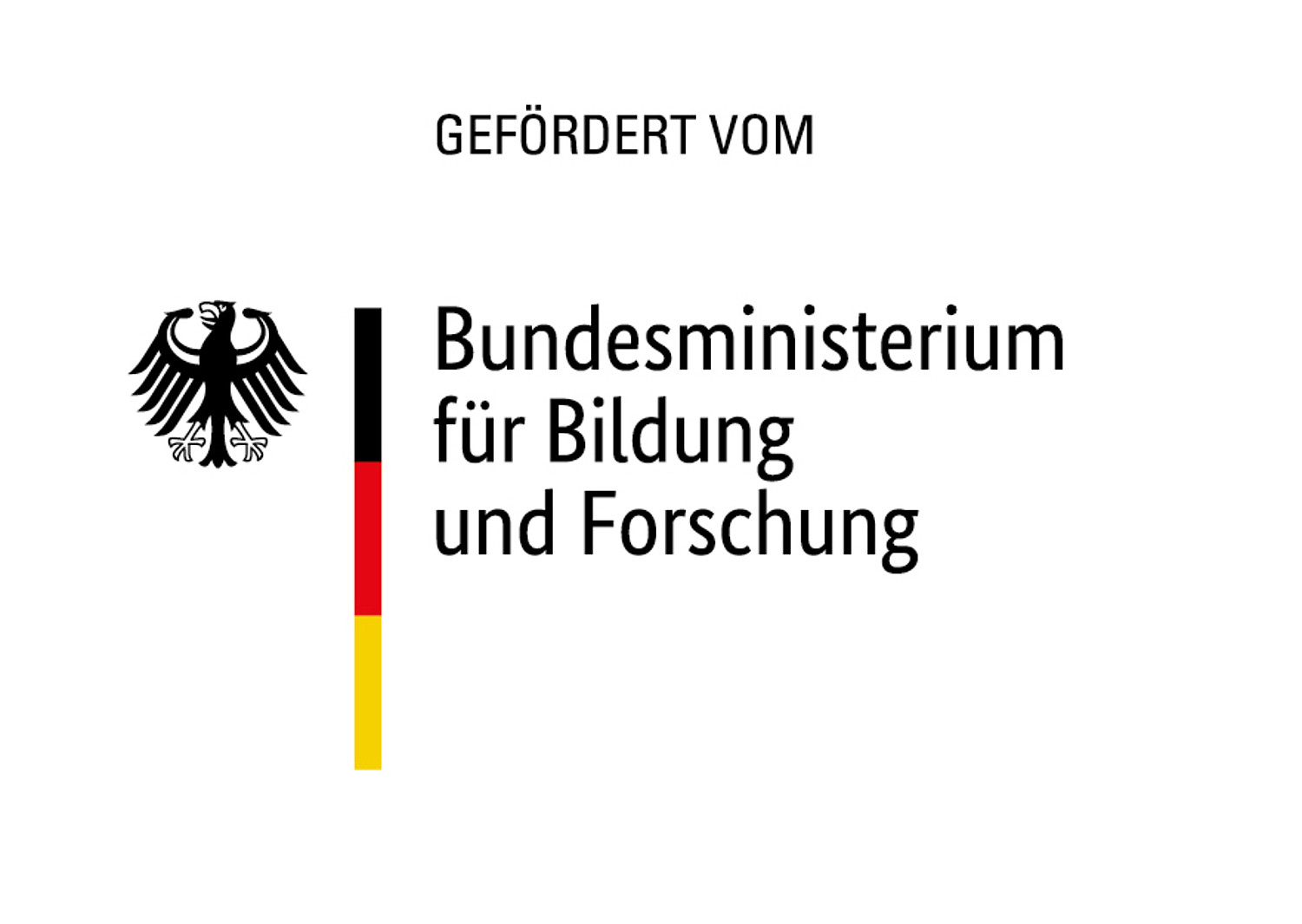Community Day
Timnit Gebru
What opportunities and risks arise for a) companies and b) us as a society when implementing algorithmic decision-making systems (ADM-Systems) in personnel selection?” My session aims to provide theoretical input on the impact of ADM-Systems in an ethically sensitive context such as personnel selection. Participants will be encouraged to reflect on the opportunities and risks. For this purpose, scientific findings on applicant reactions as well as my research findings on the effects of justifying information on applicants general belief`s to ADM-Systems and trained interviewer will be presented. Finally, I discuss implications for future research and practice.
Speaker: Theresa Genth
Today, AI is ubiquitous. We are surrounded by AI applications that we use ourselves or are used on us. But what exactly is AI, how can it be biased, why is that a bad thing, and how do we mitigate the bias? In this talk, we will take a deeper look into the concept of AI, why it might be biased and what we can do about it. This is a technical talk aimed at a non-technical audience.
Speaker: Stefanie Urchs
In this paper, I discuss friendship from the perspective of virtue ethics and claim that friendship with AI companions might be harmful to us because firstly, they do not actually meet our moral needs where friendship is concerned, and secondly, they threaten to undermine the virtue of friendship by introducing a morally defective mode of friendship and by transforming important societal norms about interpersonal relationships. I argue that designing ethically-aligned AI companions gains significant importance especially in the areas where these companions come in contact with the vulnerable groups in society such as children, the elderly, and people living with disabilities. In conclusion, I suggest that AI companions could prove helpful, for example, as models to help children practice ethical and intellectual virtues (e.g., Constantinescu et. al., 2022), as mental health aids (e.g., Graham et. al., 2019), and as ethical mediators (e.g., Anderson, 2011; Moor, 1995; on artificial moral advisors, e.g., Giubilini and Savulescu, 2018) to help us make better moral decisions and navigate ethical dilemmas. But this is a possibility only if their design respects certain ethical principles such as trustworthiness, privacy, safety, and reliability.
Speaker: Tugba Yoldas
AI technology is currently developing very rapidly, possibly transforming nearly all areas of economics and society in fundamental ways in the near term. This may greatly improve our lives and help us find novel solutions to many of the problems we currently face. But like any technology, AI offers not only opportunities but also poses potential risks. More and more researchers are concerned that artificial general intelligence (AGI) on human level could be not only the most promising but also the most dangerous technology ever invented. Are these concerns justified? Should we worry about uncontrollable AI? If so, what can we do about it, and how much time do we have left to prepare for it?
Speaker: Karl-Ludwig von Wendt
While, at least since the release of BERT [1], there has been some debate on the potential benefits and harms of Large Language Models in academic and commercial contexts [2],[3], OpenAI's ChatGPT [4] has amplified this discussion to a societal scale. Considering the increasing prominence of string production systems, this workshop draws historical parallels by following Weizenbaum [5] and providing attendees with a basic technological understanding to open a discussion about further societal implications with the goal to formulate heuristics for the identification of socially acceptable uses of such technologies.
Speakers: Lukas Seiling, Kevin Baum, Gatienne Temgoua Sonfack
Grace Hopper
Animal owners often have a close relationship with their pet and invest a lot of time and money in its care. For information purposes, pet owners often turn to the Internet as an easily accessible source of knowledge. However, especially regarding health information, this harbors various dangers, e.g. unchecked information and missing application context. Intelligent software, designed for a specific use case and able to adapt contextually, could provide pet owners with more helpful support. In the development of such software, a large number of usage context factors must be addressed, which should be discussed in the workshop.
Speaker: Laura Haase
Questions of responsibility are a fundamental part of medical diagnostics, with particular emphasis on the prevention but also remedy of medical errors. The use of artificial intelligence (AI) in medicine seems ethically imperative. Human errors and weaknesses, as well as structural problems in medical care, are facing increasingly accurate AI systems. However, questions remain such as: who is ultimately responsibe for the diagnosis? How can AI systems be responsibly integrated?
There will be an interdisciplinary dialogue on questions of responsibility, the (ethical) challenges surrounding AI in medicine and the concept of Meaningful human control.
Speaker: Angelika Kießig
Sound, a crucial aspect of perception, can influence how people see themselves and their surroundings. Particularly, sound has been extensively employed to assess the psychological and physiological well-being of people. Computer audition (CA) is emerging as a crucial auxiliary tool for non-invasive, affordable, accurate, and efficient diagnosis of numerous diseases as a result of the rapid growth of signal processing and artificial intelligence in recent years. The use of CA in the healthcare domain, particularly in primary care, has the potential to lessen the need for professional clinician training in specific skills and the medical burden in clinics and hospitals. The recent applications of CA technology in healthcare and potential challenges will be covered in this talk.
Speaker: Dr. Zhao Ren
In recent years, COVID-19 has affected the world and claimed millions of lives. The whole world fight against to COVID-19 pandemic since it causes threat to worldwide health,the economy and social. People in various fields continue to discover new methods or look for new technology to reduce the burden on the healthcare sector and to help doctors to take decision for patients’ health situation in very short-effective way. To support this challenge, this study aims to analyze multiple COVID-19 time series data with various machine learning algorithms and automate the process by Apache Airflow.
Speaker: Ceyda Akbulut
Abstract: Based on an interview studies with developers and clinicians in the field, the input for this session will illuminate how the use of AI in medical decision making creates a “responsibility vacuum” for patient outcomes. This panel welcomes scholars from all disciplines; if you are working in ML, healthcare, ethics and/or legal, you are most likely to find interesting take-aways. I look forward to discussing this phenomenon’s implications with you!
Speaker: Theresa Willem
Annie Easley
On 5 September 2022, 13 environmental, digital, development and research organizations call for digital technologies to be used to serve the society and help our environment. In particular, artificial intelligence and machine learning offer powerful tools in the fight against climate change and to support a livable future within our planetary boundaries. Therefore, as AI developers, AI experts and AI talents, we have great potential to make a real difference!
But how can more AI talents be inspired to work in the field of environment and environmental sustainability instead of using their valuable knowledge for e-commerce or fast fashion? What are the opportunities to design and develop AI in a public good oriented and sustainable way, away from time contracts and for profit logic? How can more impactful and inspiring projects be enabled and implemented at the intersection of AI and planetary boundaries?
Marcus and Jens would like to explore these questions with you. We want to work out current obstacles and challenges with you and discuss necessary conditions, possible exchange formats or innovative ideas for solutions.
Speakers: Marcus Voss, Jens Preußner
The "Smarter Weinberg" project, funded by BMDV, aims to utilize 5G technology to preserve the unique cultural landscape of the Moselle valley. Its focus lies on digitization in steep vineyards to counteract the decline in vineyard acreage and strengthen regional winegrowers' businesses. In the project we aim to automate tasks such as soil management, defoliation, and spraying with the help of robotics, AI, computer vision, and IoT sensor technology. Our presentation shows how data analysis is applied to make the vineyard management more ecological, sustainable and safer.
Speakers: Mark O. Mints, Nick Theisen
Abstract: The Organisation for Economic Co-operation and Development (OECD) is collecting best practices and tools for sustainable artificial intelligence, for both direct and indirect impacts. An initial 10 minute presentation of the OECD framework for the environmental impacts of AI would be followed by an open discussion and collection best practices, tools and resources for making artificial intelligence more sustainable, including but not limited to the sustainable design of data centres, limiting their energy and water consumption, and reducing other environmental impacts along the AI life cycle.
Speaker: Johannes Leon Kirnberger
Adaptive learning systems are the basis for individual learning paths for students. However, in combination with AI methods, they can become very opaque and incomprehensible, which may risk a loss of acceptance. For this reason, it is important to shed light on and explain decisions made by intelligent recommender systems. This involves overcoming various hurdles to ensure transparency to the students and professors. The talk will explain and discuss the requirements, challenges and possibilities of such a system and what needs to be considered and where problems can arise.
Speaker: Marc Normann
In the first part of my talk, I present various arguments and perspectives from my Master's thesis on why and how explainability is relevant and important in and with AI systems - The Argumentation is based on the European value system.
In the second part of my keynote, I refer to insights from my current job. This will be about adapting XAI solutions to the information needs of different target groups. I will give a superficial presentation of some XAI methods used by my company. I will also present what challenges we are currently encountering in the practical implementation of explainability of AI systems.
Speaker: Benedikt Hoffmann
Shafi Goldwasser
AI technology proliferates rapidly across the breadth of work contexts (e.g. complex control systems, facial recognition, or medical diagnosis). Research into the impact of AI technology on work systems is growing. Nonetheless, questions remain un-answered about human-centered work in conjunction with AI technology. The KI Camp’s attendants’ interdisciplinary backgrounds are advantageous to discuss technical, social and ethical aspects regarding AI in the light of different workplace scenarios. The goal is to integrate different points of view, resulting from the interdisciplinarity, to gain novel insights into the emerging human-AI socio-technical systems, hence, to ensure a humane future of work.
Federal Institute for Occupational Safety and Health (BAuA)
Speakers: Deniz Weißbrodt, Arn Baudzus, Marina Klostermann, Muriel Reuter, Martin Westhoven
Mary Kenneth Keller
AI models for the generation of content have been in the spotlight in the recent months for their potentially disruptive impact on the creative sector. In this talk, I will start from results of empirical studies I conducted on perceptions of embodiment and agency in human-machine collaborative artistic processes, to address the question of whether these systems may soon cease to be considered mere tools and start playing, instead, the role of co-creators.
Speaker: Caterina Moruzzi
As early as 1936, Walter Benjamin pointed out that technologies change the world that exists. New technical realities "neutralise a number of traditional concepts - such as creativity and genius, eternal value and mystery". For him, technology is a breaking point that makes an opening for a political moment.
My project "AI and Artist Intelligence" questions the relationship between society and technology at a time when automation is reinventing almost every industry. What does the use of artificial intelligence do to our self-image, what does it do to art? I will show some works that explore the possibilities of digital and analogue art production with the help of artificial assistants.
Speaker: Claudia Larcher
The use of Artificial Intelligence (AI) is becoming increasingly important in various domains, making AI education a necessity. Join us for an insightful journey into the exciting world of AI education. In this talk, you will learn the essential steps to integrating AI into your teaching curriculum, including practical tools and experiences from an interdisciplinary Bachelor Program of AI in Engineering and a major AI-MOOC platform. Get inspired by real-life examples and take home valuable insights and ideas to elevate AI teaching and equip students with the skills they need for the AI-driven future.
Speaker: Johannes Schleiss
Recently, Large Language Models show an incredible performance on many Natural Language Understanding tasks. Even without any task-specific training data these models perform well. They achieve this by utilizing distributional semantics acquired from large text corpora. However, these models still rely on the iid assumption, i.e. they are not capable of generalizing beyond their training data set. The limited capabilities of such models to perform basic reasoning or retrieve factual knowledge illustrate this and show the necessity of combining these models with symbolic systems. In this talk the usage of Knowledge Graphs as such symbolic systems will be discussed.
Speaker: Fabian Hoppe
Differential equations are one of the effective mathematical tools for understanding the behavior of dynamical systems in nature, engineering, and society. Standard numerical methods require more computing power to solve complex differential equations, making them unsuitable for real-time inference requirements in practical applications. Physics-informed machine learning is gaining popularity owing to its ability to predict solutions to differential equations in real-time. In this talk, I will introduce physics-informed machine learning along with its advantages and challenges in the context of differential equations. I will conclude the talk with a short tutorial on utilizing the DeepXDE library to solve differential equations.
Speaker: Viny Saajan Victor
In the environment of commoditization of computing power and machine learning models the quality of the data becomes the key factor for competitive advantage in the data processing domain. However, many AI projects fail due to cost overruns caused by required data preparation and cleaning while the rise of advanced analytics and increasing multidimensionality of the data often lead to increasing fragility and maintenance complexity of the currently implemented data quality frameworks. In this talk I will present how an antifragile data quality framework leveraging deep learning can enhance the quality of master data in a typical business entity and how it contributes to accelerated democratization of AI.
Speaker: Simonas Cerniauskas
Henriette Avram
Objective:
- To provide an overview of the current state of AI regulation in Brazil, with a focus on the federal legislative power's role in providing a multistakeholder approach
- To discuss the challenges and opportunities of regulating AI in Brazil – considering social, health, justice and education issues – and to share insights on lessons learned so far.
Methodology:
- Interactive presentation with slides
- Group discussions
- Q&A session with participants
Target audience:
- Legal and policy experts
- AI researchers and practitioners
- Industry leaders and representatives
Outcome:
- Participants will gain a deeper understanding of the current state of AI regulation in Brazil, and the challenges and opportunities of regulating AI at the federal legislative power.
- Participants will be equipped with insights and best practices to navigate AI regulation in Brazil and other similar contexts.
Speaker: Paulo Rená
If you're at the KI-Camp, you've probably already thought about how private companies' algorithms affect our daily life. From an Urban Governance and Development perspective, the discussion about how private sector companies like Google Maps or AirBnB influence our everyday life in cities is still relatively new. With this session, I invite you to explore the different approaches the cities of Amsterdam and Barcelona took to govern urban AI and what German Cities could learn from them.
Speaker: Paul Böttcher
The presentation will cover a status quo of AI systems used in the German and international justice systems. A brief explanation of the constitutional limits of the application of AI in the German justice system will be given, followed by an overview of relevant provisions in the draft European AI Act. The speaker is a former lawyer and now a judge at the Regional Court of Cologne and professor at the Faculty of the Business, Economics and Law of the TH Köln. He is an expert for the committee on legal affairs of the NRW state parliament concerning AI.
Speaker: Simon J. Heetkamp
General purpose AI systems (GPAI) could become a central component of the global digital infrastructure. They are understood as AI systems that have a wide range of possible uses, such as OpenAI’s GPT-3. Individual GPAI, of which cutting-edge models are mainly developed by providers in the US and China, are being re-used in hundreds of downstream applications worldwide. The EU seeks to ensure human-centric and trustworthy AI. In this talk, Sabrina Kuespert from the University of Oxford will provide actionable insights into GPAI and explore the role the EU could play for global trust in these systems.
Speaker: Sabrina Küspert
While there are lots of studies on the perception of AI , the question is what is really new in this regard. The underlying theories are known and most individuals do not understand what AI is when deciding to reject or accept to use services or to collaborate. And yet there are differences to traditional software that might not be consciously present. The talk will show which differences they are in the perceptions of individuals and what has to be considered in the design of AI services.
Speaker: Michael Leyer
Screening of two short videos and discussion about two different ways of how to dominate users via tech tools – Eastern (Chinese) and Western (US-American) style. Reference: https://www.giselaschmalz.com/dictator-of-your-choice/
Speaker: Gisela Schmalz


